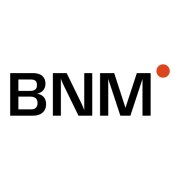Best Banking & Finance Lawyers in Vilnius
Share your needs with us, get contacted by law firms.
Free. Takes 2 min.
List of the best lawyers in Vilnius, Republic of Lithuania
About Banking & Finance Law in Vilnius, Republic of Lithuania
Banking and finance law in Vilnius, the capital of the Republic of Lithuania, plays a crucial role in the economic infrastructure of the country. Lithuania, as a member of the European Union, adheres to both EU regulations and domestic laws governing financial services, banking operations, securities, investments, and insurance. The banking sector in Vilnius is known for its dynamic environment, with an increasing presence of both traditional banks and fintech companies. Regulations are aimed at ensuring transparency, protecting consumers, and promoting stability within the financial system.
Why You May Need a Lawyer
There are several situations where individuals and businesses may require legal assistance related to banking and finance in Vilnius. Common scenarios include:
- Setting up a new business or expanding existing operations, requiring advice on financing and compliance with local regulations.
- Navigating complex financial transactions, such as mergers, acquisitions, or investments.
- Resolving disputes related to loans, credit, or contract breaches.
- Ensuring compliance with regulatory requirements for financial products and services.
- Seeking assistance with insolvency, bankruptcy proceedings, or asset recovery.
- Understanding tax implications and seeking optimization within the legal framework.
- Addressing issues related to consumer rights protection in financial matters.
Local Laws Overview
Lithuania's banking and finance sector is regulated by several key laws and institutions:
- The Law on Banks: Governs the operations, licensing, and supervision of banking institutions.
- The Law on Financial Institutions: Regulates non-banking financial service providers, including leasing and insurance companies.
- The Securities Law: Covers securities transactions, market operations, and regulates capital markets.
- Consumer Protection Law: Ensures the rights and interests of consumers are defended against unfair practices.
- The Bank of Lithuania: Acts as the central bank, supervising financial institutions, ensuring price stability, and overseeing the financial system's security and effectiveness.
Frequently Asked Questions
What is required to obtain a banking license in Lithuania?
To obtain a banking license, an entity must submit an application to the Bank of Lithuania, demonstrating adequate capital, credible management, and compliance with regulatory standards.
How are fintech companies regulated in Lithuania?
Fintech companies must comply with the same financial regulations as traditional banks, including obtaining necessary licenses from the Bank of Lithuania and adhering to EU regulations.
Are there any incentives for foreign investors in Vilnius?
Yes, Vilnius offers a favorable tax environment for foreign investors, including various incentives such as special economic zones and potential grants from EU funds.
What consumer protections are available in financial services?
The Consumer Protection Law ensures that individuals have the right to transparent information, fair contracts, and protection against misleading financial products and services.
How can disputes with financial institutions be resolved?
Disputes can be resolved through negotiations, mediation, or through the Office of the Inspector of Journalist Ethics, and, if necessary, litigation in courts.
What role does the Bank of Lithuania play in banking regulation?
The Bank of Lithuania supervises banks and other financial institutions, ensures monetary stability, regulates financial markets, and protects consumer interests.
Is there a deposit insurance scheme in Lithuania?
Yes, the deposit insurance scheme guarantees the protection of depositors' funds up to a certain amount in case of a bank failure.
Can foreign banks operate in Lithuania?
Yes, foreign banks can operate in Lithuania either by establishing a branch or by providing cross-border services in compliance with regulatory standards.
What are the main types of financial institutions in Vilnius?
The main types include commercial banks, credit unions, leasing companies, insurance companies, and fintech service providers.
How is investment activity regulated in Lithuania?
Investment activity is regulated under the Securities Law and the supervision of the Bank of Lithuania, ensuring transparent and fair market operations.
Additional Resources
Several resources can assist those seeking information or legal advice in banking and finance matters:
- Bank of Lithuania: Offers regulatory information and guidance for financial institutions.
- Consumer Association of Lithuania: Assists consumers in resolving disputes related to financial services.
- Lithuanian Financial Supervisory Authority: Provides oversight and ensures compliance within financial markets.
- Vilnius Chamber of Commerce, Industry, and Crafts: Offers a network and resources for businesses and investors.
Next Steps
If you need legal assistance in banking and finance, consider the following steps:
- Identify your specific legal needs and gather relevant documents.
- Seek recommendations for legal professionals specializing in banking and finance law in Vilnius.
- Schedule consultations with potential lawyers to discuss your case and understand their approach.
- Verify the credentials and experience of the lawyer or firm you are considering.
- Once satisfied, engage with a legal expert to ensure proper representation and advice throughout your financial dealings.
Lawzana helps you find the best lawyers and law firms in Vilnius through a curated and pre-screened list of qualified legal professionals. Our platform offers rankings and detailed profiles of attorneys and law firms, allowing you to compare based on practice areas, including Banking & Finance, experience, and client feedback.
Each profile includes a description of the firm's areas of practice, client reviews, team members and partners, year of establishment, spoken languages, office locations, contact information, social media presence, and any published articles or resources. Most firms on our platform speak English and are experienced in both local and international legal matters.
Get a quote from top-rated law firms in Vilnius, Republic of Lithuania — quickly, securely, and without unnecessary hassle.
Disclaimer:
The information provided on this page is for general informational purposes only and does not constitute legal advice. While we strive to ensure the accuracy and relevance of the content, legal information may change over time, and interpretations of the law can vary. You should always consult with a qualified legal professional for advice specific to your situation.
We disclaim all liability for actions taken or not taken based on the content of this page. If you believe any information is incorrect or outdated, please contact us, and we will review and update it where appropriate.
Browse banking & finance law firms by service in Vilnius, Republic of Lithuania
Vilnius, Republic of Lithuania Attorneys in related practice areas.














